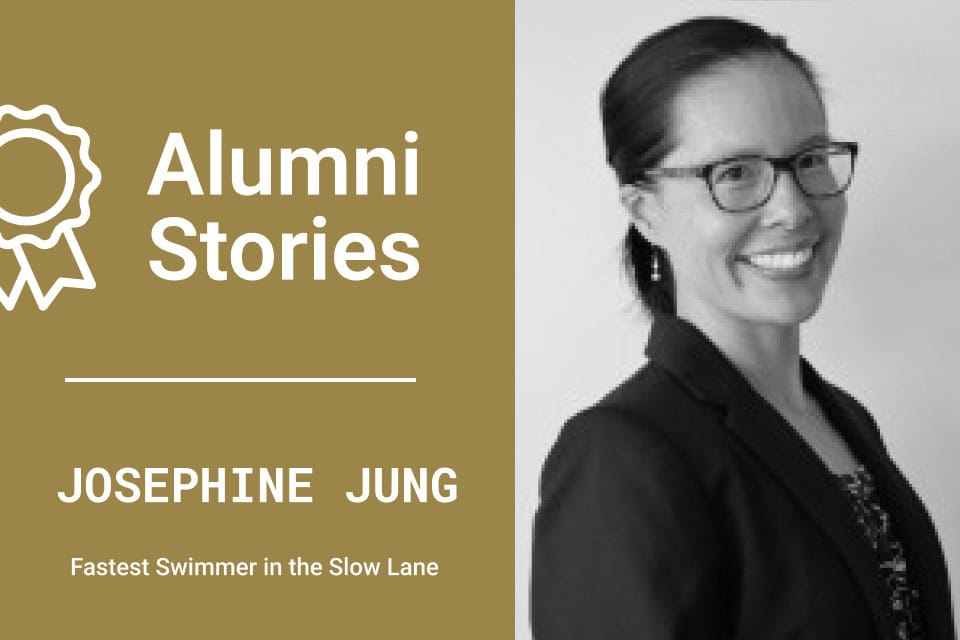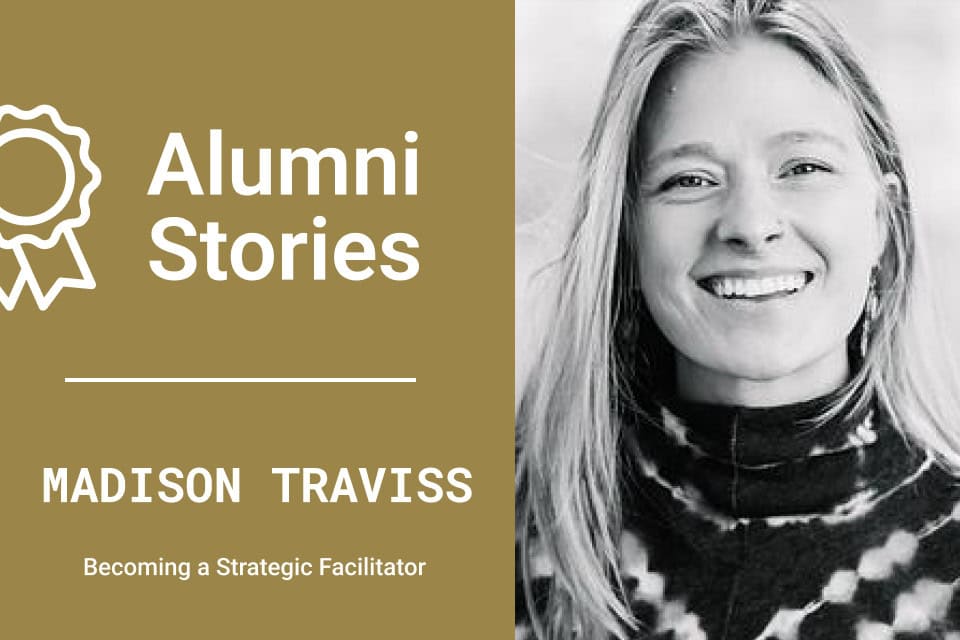How Voltage Control Transformed My Career
In 2022, I was in my 10th year as a professional facilitator. I had spent a decade developing my skills in active listening, asking open-ended questions, providing constructive feedback, and guiding a group through moments of conflict in adventure recreation and experiential learning. Successfully guiding over 300 groups and logging thousands of hours, I obtained my Level II and Challenge Course Manager certifications and was in high demand to work at various courses in SE Wisconsin and NE Illinois. During this period,
I designed and delivered successful progressions to a wide range of demographic groups, from middle school to high school leadership programs, sports teams, and senior executives. My designs incorporated the use of collaboration, self-awareness, building connections among group members, creating supportive opportunities, and increasing trust within the team. Without realizing it at the time, I was immersing and training myself in facilitation competencies that transcended industries and reached a level of competency that I was asked to assist in training new staff. I felt I reached the pinnacle of facilitation. Wrong. I realized that there was so much more to this world of facilitation that I have come to love and respect.

Reflecting on my years in team-building, one thing I enjoyed the most was autonomy. I had the freedom to design my own activities and progressions for the groups I facilitated. I’m not a card-carrying member of the status quo, so I was in my element, and my groups experienced the positive energy I emanated with every gathering. I like structure and routine in my work, and I can become frazzled when my schedule doesn’t play out how I want it to. With this freedom comes responsibility. Over the years, I learned to become adaptable and flexible in my facilitation.
This trait is a must when facilitating any size group. You learn quickly when you have 10 groups of 15 people, each moving about in a limited space, or you’re facilitating 28 high schoolers for 9 hours. The success I achieved in designing programs, guiding groups to their intended outcomes based on their purpose, receiving positive feedback time and again, engaging in Facilitative Leadership, and becoming more self-aware throughout my journey is a testament to the effectiveness of quality facilitation.
A Tumultuous Two Years
Our team of facilitators had just finished the first weekend of training in March of 2020 when I was asked by my first mentor, “Big Dog,” to be more involved in training new staff. He wanted me to share with the new team how to harness ideas for designing progressions that would aid in their growth and provide the best outcomes for our clients. Just as I was starting to consider how I might approach this new task, the world was shut down due to COVID-19. What now? How do I stay relevant? Will my skills get rusty? Will I somehow unlearn what I’ve learned? Yes, I had my training manuals and materials, my notes, and my knowledge, but this is not as effective as being hands-on. Later that year, my mom passed, delivering a cumulative blow to my psyche. In 2021, courses started opening again. Groups were not coming out as often before shutting down. I immediately jumped in to lead groups here and there as opportunities emerged. For me, this didn’t last long. In the summer of 2021, I experienced a health crisis that forced me out of work for 9 months. I’m out again?!? Another hit to my psyche. After I healed, my doctors advised me not to do team-building in the fashion of outdoor adventure recreation due to the nature of my health issue. Now what? I want to do facilitation. I was born to lead and guide groups to success.
Finding a New Path
My mom always told me that I was tenacious. I am. I wasn’t going to let this health situation prevent me from doing what I love. Yes, I stayed away from outdoor team-building and sought other facilitation opportunities, eventually becoming a workshop facilitator for a non-profit. I learned early on that this new position was a transition back into group facilitation. I led every session with the same energy and positive attitude. I provided a psychologically safe space for the participants to engage and share their experiences and stories. I tried to incorporate my past with this new experience. It didn’t work. Group activities weren’t applicable because everyone in these sessions was there for their own individual reason, and the material being taught didn’t allow room for this opportunity. I desired more. I wanted to group facilitate again.
Embracing the Voltage Control Community
It was early Spring 2023. At this point, I knew with 100% conviction that my current role was one of transition. Core competencies and standards in the industry applied to this role; however, the group dynamic I was familiar with was non-existent. There was no opportunity for growth. I was ready for more. On a slow day later that spring, my colleague Glorimar joined me in the training room where I delivered my sessions. During our conversations, she said,” We should get a facilitation certification.” Vivid memories of obtaining my two certifications in 2017 swirled in my head. I knew certification designations had many advantages, and I was ready to learn, grow, and expand my knowledge and skill set.
Without hesitation, I researched facilitation certification programs online. I sought programs that were challenging, interactive, and robust and incorporated an immersive learning experience. Community is important to me, so I placed this value at the top of my search criteria. To expedite my professional growth and development, I knew having a pool of mentors to learn from was crucial. My mentors from the team-building discipline were patient, open-minded, had a willingness to answer questions, and supportive of my growth. I wouldn’t settle for less as I looked for new training and certification.

Facilitation was my identity, but I found myself in uncharted waters. What would I do with a certification that was unfamiliar to me? Who would I be serving? What are the activities involved in the process? These are all valid questions that I researched alongside looking for an organization that would provide the education needed for my new journey. After failed attempts to find the right program for me, I stepped back for a couple of weeks. I was sitting at my desk one morning, and I said to myself, “I want to be a certified facilitator.” I researched more, typing all the keywords for facilitation. During this search, I discovered Voltage Control.
I was intrigued. The personality, videos, reading materials, free downloadable templates, and photos of connection and community on their website captured my attention. A strong emotion flowed through me. It was a feeling of comfort that I experienced during my days on the challenge courses. I felt this organization would provide me with new skill sets, guide me on my new path, and open vast opportunities. Still, I had questions. Jamie, Voltage Control’s Operations Manager, offered to connect me with an instructor of the program to get clarification on my goals. At the end of a 30-minute session with Erik Skogsberg, I was satisfied and at ease. Erik was patient, calm, and clear when answering my questions. I told him I was going to register for the winter 2024 cohort.
A Deeper Understanding and Appreciation
Voltage Control’s certification program exceeded my expectations. After registering for the winter cohort, a new world immediately emerged. Students receive reading material that would play a pivotal role in our discussions as a cohort on and offline. We were connected and immersed in the Facilitation Lab community that allowed for robust discussions, collaboration of ideas, offering advice for facilitation opportunities, and expanding our professional network. In our synchronous sessions, we utilized Mural to delve deep into our superpowers as facilitators, discover new techniques and processes, and practice our facilitation and technical skills in the online visual platform.
A key component in this temporary world that we created was the focus of our “why.” What is my purpose as a facilitator, and why am I doing this work? As part of Erik’s design of this course offering, he helped us explore and understand why our purpose was a fundamental part of our growth. Everyone in our cohort appreciated this self-discovery, as it was evident in the conversations we engaged in during class time and in the Lab. Peeling back these layers played an essential role for me. The exercises we participated during the first couple of weeks of the session provided a clear lens into my purpose, and my why became well-defined. The importance of a strong purpose statement not only increased confidence in myself, but it is reflected in how I show up when I facilitate.
New Horizons on my Current Journey
In doing my research for a certification program, I noticed Voltage Control based its certification guidelines from the Core Competencies of the International Association of Facilitators. While reading these competencies, it was clear they strongly aligned with standards I was familiar with as an outdoor adventure recreation team-building facilitator. Knowing these competencies transcended the industry and the community environment Voltage Control created were the prime reasons I
registered for their program. Facilitation is facilitation. It works in every setting. What is needed for it to be effective is quality training, educational material that is applicable in every gathering space, the ability to practice your craft with colleagues, an ongoing support system, access to mentors and coaching, and a comfortable setting to engage in discussions surrounding your craft. Voltage Control provides all this and more.
As I continue my journey, I know I’m not doing it alone. I have a group of people dedicated to my continuing professional growth and development who want to watch me succeed. I remember one day, I was driving to work. The sun had risen from the horizon, I was nestled in my car seat, with my left hand on my chin, and I said to myself out loud, “I found my community.”


